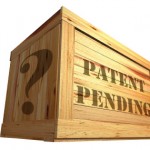As a former IP law firm shareholder and senior corporate lawyer, I know all too well the expense required to start and maintain an IP law practice. Not only are IP lawyers of all levels of experience paid handsomely, but so are the highly skilled paralegals, docket clerks and administrative professionals traditionally required create the infrastructure needed to handle the myriad of details involved in an IP law practice. Of course, this expensive infrastructure must be sustaining, so while a lawyer serves today’s clients, her eye must also be on finding the next client because payroll and rent obligations don’t take a holiday when clients do. This "feed the beast" nature of the IP law practice model was a primary reason that I decided several years ago that I would not again work in the traditional practice of law. How could I? The standard legal service framework required me to build
Why the IP Law Firm Business Model is Broken And What I Am Doing About It
Google Changes the Game Again–This Time for Patent Owners and Those Who Serve Them
 Patrick Anderson of the great Gametime IP blog reported the details of Google's new prior art searching tool*. This is such important news, I thought it important to repeat it in a separate post. Patrick provides detailed instructions for how to use the Google patent searching tool, and I will not repeat that information here. This post provides commentary on why I think this is a very good development for the patent world. Google's original announcement on its blog is here. It does not appear coincidental that Google is upgrading its patent searching capabilities: in this press release from June 2010 we are informed of the partnership between Google and the USPTO to increase the amount of US patent information available to the public.
When used correctly, Google's tool can help "democratize" the patent analysis process
Patrick Anderson of the great Gametime IP blog reported the details of Google's new prior art searching tool*. This is such important news, I thought it important to repeat it in a separate post. Patrick provides detailed instructions for how to use the Google patent searching tool, and I will not repeat that information here. This post provides commentary on why I think this is a very good development for the patent world. Google's original announcement on its blog is here. It does not appear coincidental that Google is upgrading its patent searching capabilities: in this press release from June 2010 we are informed of the partnership between Google and the USPTO to increase the amount of US patent information available to the public.
When used correctly, Google's tool can help "democratize" the patent analysis process
Patents–Who Needs Them? Not Most Startup Entrepreneurs.
 A recent article in TechCrunch indicates that entrepreneurs are less likely to file patents than in the past. Nonetheless, there remain countless patent lawyers and agents who will argue convincingly that an entrepreneur must obtain a patent in order to succeed and who will take their $5-15K to file a darned good patent application that won't provide them a bit of business value in the long run. Even worse, the resources expended in the patent process robs the entrepreneur of needed cash that will allow them to gain customers, and of their most valuable asset: time. But when the only tool you have is a hammer, everything looks like a nail--which is why those still in the business of writing patent applications will continue to make their case to entrepreneurs (and investors) who lack the domain expertise to
A recent article in TechCrunch indicates that entrepreneurs are less likely to file patents than in the past. Nonetheless, there remain countless patent lawyers and agents who will argue convincingly that an entrepreneur must obtain a patent in order to succeed and who will take their $5-15K to file a darned good patent application that won't provide them a bit of business value in the long run. Even worse, the resources expended in the patent process robs the entrepreneur of needed cash that will allow them to gain customers, and of their most valuable asset: time. But when the only tool you have is a hammer, everything looks like a nail--which is why those still in the business of writing patent applications will continue to make their case to entrepreneurs (and investors) who lack the domain expertise to
False Marking Lawsuits are Real Problem for Business and Make Little Sense When Applied to Expired Patents
 The threat of false marking lawsuits has garnered much attention in the IP business press in the last couple of years. Companies of all sizes have been hit with qui tam actions (that is, suits brought by an individual or company on behalf of the US government to right wrongs done to the government, not the individual) where the basis of the action is the mis-marking of a product with an incorrect or expired patent number. Like a gold rush, these lawsuits have resulted in a number of legal entrepreneurs seeking out products that are incorrectly marked--usually by identification of expired patents, which is an easy thing to find--and their bringing suit against the offending companies. Indeed, there were over 500 false marking lawsuits filed in 2010, making this cause of action seem almost like a
The threat of false marking lawsuits has garnered much attention in the IP business press in the last couple of years. Companies of all sizes have been hit with qui tam actions (that is, suits brought by an individual or company on behalf of the US government to right wrongs done to the government, not the individual) where the basis of the action is the mis-marking of a product with an incorrect or expired patent number. Like a gold rush, these lawsuits have resulted in a number of legal entrepreneurs seeking out products that are incorrectly marked--usually by identification of expired patents, which is an easy thing to find--and their bringing suit against the offending companies. Indeed, there were over 500 false marking lawsuits filed in 2010, making this cause of action seem almost like a
Clients Save Money and Get Better Patents When Attorneys Use This Solution
As a "recovering patent lawyer," I now realize that I wasted a whole lot of my clients' money over the years because of the inherent inefficiencies that have been built into patent practice. In this regard, I wrote about the money wasted by old fashioned patent filing systems in this post a while back, a fact which I think dictates that clients insist that their lawyers adopt electronic filing systems. I have also written about the money wasted as a result of the inability of many clients to judge the value provided by their patent lawyers, which I believe is a result of information asymmetry. Another waste of money comes from the time needed to review patent filings during the drafting process. The highly technical nature of patent application and claim drafting requires detailed review of an application on multiple occasions prior to filing. Each review requires the time
Patent “Expert” Opinion on Reasons for Google Tender Offer for Groupon Reveals Fundamental Problems with IP Professionals
After several years of writing about how business leaders need to wrest control of their IP matters from lawyers, today brought a revelation that illuminated why this seems to be such a hard point to get across. It should be a no brainer: it has been shown time and time again that when a company aligns its IP strategy with its business strategy, value creation opportunities abound. So, why is it so hard to get business people to sign onto something that is unquestionably in the best interests of their shareholders? It's simple--patent experts wholly lack credibility with business people on these issues. This lack of credibility is compounded by the fact that these experts are given a forum to trumpet these views through use of their firms' large marketing budgets, as well as by haphazard journalists who give them a forum to expound their self-interested views without counterpoint. To this
How Patent Whitespace Analysis Can Set a Company Up for Sustainable Failure
I spent a few days last week at the Innovation Cubed Conference in Orlando. While there, I heard two instances of use of a term that I absolutely hate, at least when it is used by innovation professionals to define in some manner the innovation processes of their respective organizations. This word is:
PATENT WHITESPACE ANALYSIS
Not only do I hate this phrase, I think that companies that utilize patent (or IP) whitespace analysis to define their product and technology development pathways are quite possibly setting themselves up for failure. And, it's bad enough that a single innovation project might fail as a result of the faulty data inputs that can occur from relying on whitespace assessments, but I think that most corporate processes incorporating patent whitespace analysis are based upon faulty methodology, thus setting the organization up for sustainable failure. For the uninitiated, when applied to the patent world,Business Can’t Hide from False Patent Marking Lawsuits: Here’s How to Predict If You Might be Sued
The take home message: If your company sells a product that bears a patent number, you need to read this post in its entirety. Much has been written in recent months about false marking lawsuits, most of these in the form of "urgent legal alerts" by law firms that calmly deconstruct the appellate court rulings (this one is illustrative). At the end of the day, these articles likely do not look very "urgent" to business people like yourself because most business people do not engage themselves with patent law generally, let alone something as arcane as false marking. So, even though the subject excites us a patent experts, we really cannot expect you to get excited about something that does not seem to affect your ability to conduct business today. However, if your business is a likely target of a false marking lawsuit it will cost you big bucks almost immediately.
The Disconnect Between IP Business Value and IP Legal Services and How Business Leaders Can Do a Better Job Choosing Their IP Counsel
Last week, I did what I these days rarely ever do: live in the world of corporate and law firm IP lawyers. I traveled to Minneapolis to speak at the Midwest IP Institute and, while there, I was treated to a baseball game in a luxury box, a high end hotel room with cocktails and hors d’oeuvres, a fabulous steak dinner and various other fringe benefits that I have not seen recently. It was clear to me that even in these trying economic times when law firms have folded and merged and lawyers have been laid off in droves from all sorts of law firms, many lawyers are still living the high life. I must say, I was somewhat surprised, because I thought business people were getting smarter about how they spent their money these days and, as a result, would not be impressed with fancy law offices and "bling"
IP Strategist on the Radio: 2 Recent Interviews
As my consulting practice becomes ever more busy, blogging must be relegated to times when client work is not pressing--that ever-elusive free time. But now that Summer is here, free time has been hard to come by--it's hard to write when at the pool with the kids or driving to Grandma's house--but I haven't been totally giving up my outreach. I recently participated in 2 radio interviews where I discussed the value of IP Strategy for entrepreneurs and inventors. Here I was on the 40 Year Old Business Virgin Radio Show with Dave Savage, Leader and President of The Inventors Association of Georgia and a person named Mohamed who has a really cool entrepreneurial story (sorry I didn't get his last name). The hosts of the show, Kile Lewis and Ted Jenkin, are irreverent business advisors, and you should enjoy the show. (I appear in the first half).


